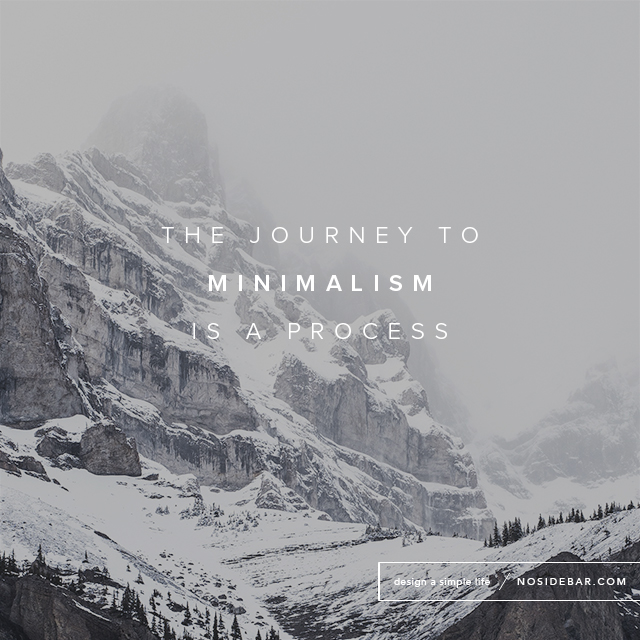While I fully acknowledge I am not an expert on minimalism, I do know I want to live a deliberate and meaningful life so much I can taste it. However, it is usually not simple for me to live simply.

I will admit I am a bit of an idealist. When I see the benefits of something and commit to doing it, I am all in, wanting to create the ideal that I seek overnight.
In the case of minimalism, I wanted my whole family to be on board from the moment that I decided to adopt a simple lifestyle. I dreamed of children who cheerfully packed boxes of their stuff to donate to charity while vowing never to collect so much again. I longed for white space, clear countertops, clean bedrooms, and tidy living areas that stayed that way because everybody was happily on the same page.
I wanted my life to look like the lives of those whose simple living blogs and books gave me inspiration, and I wanted it to happen overnight. That was a good dream, but reality soon descended upon me like a flood.
My husband and five children (including three teenagers) have never been quite as excited about this lifestyle as I. Some of them are sentimental and want to hold onto stuff that has meaning to them, but seems like junk to me. Some of them love having their things out where they can see them, which makes clutter-free rooms difficult to maintain. Some are merely unfazed by disorder, seeing no pressing need to purge possessions, or even to keep them put away.
If you sometimes feel like a minimalist lifestyle is outside of your reach, perhaps you will be find hope in these three things that I have learned throughout my own imperfect quest for simplicity:
1. The journey to minimalism is a process.
As with anything in life, results are generally not immediately forthcoming. Be patient with yourself and your family. Keep at it. Give yourself some slack when things do not go perfectly. Small steps make a big difference over time.
2. Focus on what you can control.
I have come to accept the fact that I cannot control anybody’s stuff but my own. I learned this the hard way by going through my husband’s drawers when he was not home and throwing away a few things that were important to him.
I would not recommend that course of action, as it sent me searching through bags of garbage for his hidden treasures.
When I focused instead on my own things, I saw progress. Soon there was empty space in my closet and drawers, which felt like a breath of fresh air, even though there were piles of stuff elsewhere that did not belong to me.
Eventually, after watching me sort through and get rid of so much, my husband decided to donate several boxes of his old stuff when we tackled the garage together. It’s all about baby steps.
We still don’t always see eye to eye on how we should execute a minimalist lifestyle, and all bets are off when we throw the kids and teenagers into the mix, as nothing is very simple with them. However, when I concentrate on what is within my control, I am much happier, and that helps the process immensely.
Many times, when I get frustrated with what seems like a lack of progress, I simply must accept that living in a family requires compromise. I often have to reconcile my desire for an abundance of white space and order with the rest of my family’s desire for something a little more flexible.
3. Minimalism looks different for everybody.
As much as I sometimes want my life to look like the lives of other minimalists whom I admire, my reality may diverge from that perceived ideal, and that is OK. I must work within the framework of my own circumstances, relationships and family dynamics, which may differ greatly from those of others.
Minimalism is not, after all, a game of comparison. It is definitely not a new way to keep up with the Joneses by competing to see who can live with less or sacrifice more, where winning results in a sense of superiority.
It is a quest for contentment and gratitude that is unrelated to owning the newest and best. It is a call to slow down and pay attention. It is a way to see joy and purpose in everyday life by eliminating distractions and bringing the most important things into focus.
When looked at in that light, it is easier for me to find satisfaction in my own situation, knowing that I am doing the best I can and generally moving in the right direction, despite setbacks along the way. I may not be perfect, but I am becoming a minimalist in my own way and in my own time.
A little adaptability is always in order, and therein I can find joy in my journey to simplicity -– a journey whose destination is as unique as I am.